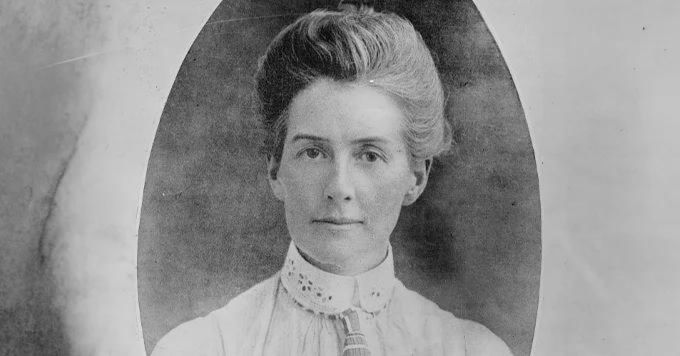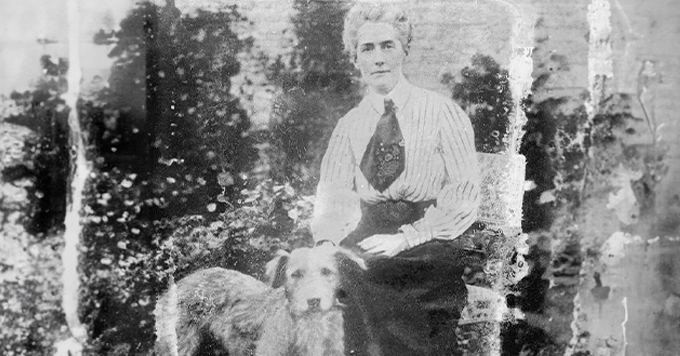Educational Initiatives in Honor of Edith Cavell: Investing in Our Nurses, Investing in Our Future

In the annals of nursing history, few figures shine as brightly as Edith Cavell. Her steadfast dedication to patient care and extraordinary bravery during World War I continue to inspire nurses worldwide. As we reflect on her legacy, it's important to consider how we can continue to honor her memory through supportive and empowering educational initiatives. At Wilkes University, we are committed to empowering nurses by providing supportive, flexible online nursing programs that foster growth and expand their impact in healthcare
Edith Cavell's impact on future nursing persists through the compassionate dedication of nurses everywhere and our commitment to nurturing the evolution of healthcare professionals.
Edith Cavell: A Beacon of Compassion
Edith Cavell's story is one of bravery and compassion. As a British nurse working in German-occupied Belgium during World War I, Cavell risked her life to save soldiers from both sides of the conflict. Despite facing immense danger, she remained resolute in her dedication to providing care to those in need. Cavell's selflessness and sense of duty serve as a timeless reminder of the vital role nurses play in society.
Edith Cavell's Impact on Future Nursing
Edith Cavell's legacy extends far beyond her actions during World War I. Born in 1865, Cavell trained as a nurse in London and later became the matron of a hospital in Brussels, Belgium. When war broke out, she turned her hospital into a Red Cross hospital, treating wounded soldiers without discrimination. Despite the risks, Cavell also became involved in a network helping Allied soldiers escape German-occupied Belgium to the neutral Netherlands. Her actions were discovered, leading to her arrest and subsequent execution by a German firing squad. Edith Cavell's impact on future nursing is evident. Her courage and compassion laid the groundwork for modern nursing practice, inspiring generations of nurses to follow in her footsteps. Her unwavering dedication to patient care serves as a model for future nurses, reminding them of the profound impact they can have on the lives of others.
Advancing Equity: Addressing Discrimination in Nursing
Despite significant progress, discrimination remains a persistent issue within the nursing profession. Edith Cavell, often regarded as the "poor man's Nightingale," was a pioneer in nursing who believed deeply in the humanity of all individuals, regardless of their background or nationality. She did not discriminate in her care, and her unwavering dedication to providing compassionate care to all should serve as an inspiration and encouragement to modern nurses.
Sadly, discrimination in nursing is still present among patients and healthcare workers. Nurses from marginalized communities often face barriers to entry and advancement, including racial bias, gender discrimination, and socioeconomic disparities. Addressing the following systemic inequalities is essential for creating a more inclusive and equitable nursing workforce.
Facts About Ongoing Discrimination in Nursing
- Racial Bias: Sixty-three percent of nurses surveyed reported personally experiencing acts of racism in the workplace, with perpetrators identified as either peers (66%), patients (63%), or managers or supervisors (60%), while 57% of nurses stated they had confronted racism in their workplace, yet more than half noted that their actions yielded no change.
- Gender Discrimination: Despite comprising the majority of the healthcare workforce, with 76% of all healthcare positions held by women, gender discrimination against women healthcare workers is prevalent, with studies estimating that 66–80% of these women have experienced such discrimination. This discrimination can manifest as sexual harassment, inequitable compensation, limited career advancement, and misidentification of women physicians' roles.
In nursing, the prevalence of gender discrimination can also take a different form. While the field is heavily female-dominated, men who pursue careers in nursing can face their own set of challenges. According to a recent study, male nurses frequently encounter stereotypes and biases that perpetuate the notion that nursing is exclusively a woman's profession. This stigma can lead to discrimination in hiring practices, as some employers may harbor reservations about hiring male nurses, fearing they may not possess the same nurturing qualities or be able to communicate with patients effectively.
The study also highlights that male nurses may experience isolation and ostracization within their workplaces as they navigate environments where they are often the minority. This sense of alienation can impact their sense of belonging and job satisfaction, ultimately affecting their mental well-being and retention in the profession. - Socioeconomic Disparities: Socioeconomic factors, including parent education, social support, lifestyle, and emotional intelligence, contribute to professional values among nursing students, collectively accounting for 11% of these values. Qualitative analyses support these findings, indicating that socioeconomic disparities can impact nursing students' academic performance and career success.
- LGBTQ+ Discrimination: Research indicates that LGBTQ+ nurses are more likely to experience discrimination and harassment in the workplace, leading to higher rates of burnout and job dissatisfaction compared to their heterosexual counterparts.
- Ageism: Studies revealed that older nurses often face age-related discrimination in the workplace, including perceptions of being less competent or technologically adept. Similarly, ageism against younger nurses is also prevalent. This age-based discrimination can manifest in various forms, including skepticism about their clinical skills, assumptions about their commitment to the profession, and exclusion from decision-making processes due to perceived lack of experience.
These statistics highlight the persistent challenges of discrimination in the nursing profession and underscore the need for concerted efforts to address systemic inequalities and promote diversity, equity, and inclusion (DEI).

Edith Cavell's Contributions to Nursing in a New World
Edith Cavell's contributions to nursing are immeasurable. In addition to her acts of heroism during World War I, Cavell played a significant role in advancing the nursing profession through her commitment to patient care and advocacy. Her legacy continues to inspire nurses around the world, reminding them of the importance of compassion, courage, and integrity in their practice. As we celebrate Cavell's life and legacy, we must also recommit ourselves to upholding the values she held dear and working towards a future where every nurse has the opportunity to thrive. Her contributions have continued to pave the way for the future of nursing.
What Will the Future of Nursing Look Like?
As we look to the future of nursing, it's clear that the profession will continue to evolve in response to changing healthcare needs. Educational initiatives like the online nursing programs at Wilkes University are essential for preparing today’s nurses to meet these evolving demands, equipping them with the knowledge, skills, and resources they need to excel in their field while championing DEI principles. By staying abreast of these trends and embracing innovation, nurses will continue to be at the forefront of healthcare, driving positive change and improving patient outcomes worldwide.
Future Trends in Nursing
- Increasing prevalence of chronic diseases: According to the Centers for Disease Control and Prevention (CDC), approximately six in ten adults in the United States have a chronic disease, while four in ten adults have two or more chronic diseases. These chronic conditions include heart disease, cancer, diabetes, and obesity, among others. Nurses will play a crucial role in addressing emerging health challenges, such as the increasing prevalence of chronic diseases, which will require nurses to develop specialized skills in disease management and patient education.
- Aging population and associated healthcare needs: By 2030, approximately 20% of the United States population is projected to be aged 65 and older, compared to about 13% in 2010. This demographic shift reflects a significant increase in the number of older adults who will require healthcare services and support. The aging population presents unique healthcare needs, including geriatric care and end-of-life support, necessitating nurses to provide compassionate and holistic care tailored to individual needs.
- Integration of technology into healthcare delivery: As of 2020, 76% of U.S. hospitals had adopted at least a basic electronic health record (EHR) system, representing a significant increase from just 9.4% in 2008. The integration of technology into healthcare delivery will transform nursing practice, requiring nurses to adapt to electronic health records, telehealth platforms, and advanced medical devices to enhance patient care and communication.
- Continued advocacy for patient rights, ensuring that individuals receive respectful and dignified care, free from discrimination and bias.
- Support of diversity, equity, and inclusion (DEI) initiatives within the nursing workforce: As of 2023, only 12% of registered nurses in the United States identified as racial or ethnic minorities, despite these groups making up 40% of the population. This highlights the ongoing need for increased diversity within the nursing workforce to better reflect the communities they serve and address healthcare disparities. Promoting diversity, equity, and inclusion initiatives within the nursing workforce will be essential for addressing healthcare disparities among marginalized communities and fostering a culture of belonging and respect.
Join the Legacy: Evolve as a Nurse at Wilkes University
Although the world looks a lot different today than it did during the First World War, Edith Cavell's unwavering dedication to compassionate care continues to inspire nurses worldwide. At Wilkes University, we offer a number of supportive, flexible online nursing programs. By investing in your education as a nurse, you not only pay homage to Cavell's memory but also pave the way for a brighter future in nursing.
Programs Available:
- RN to Master of Science in Nursing
- BSN to Master of Science in Nursing
- Doctor of Nursing Practice
- PhD in Nursing
- Post-Master's/APRN Certificate
Take the first step towards expanding your impact as a Wilkes Nurse.




